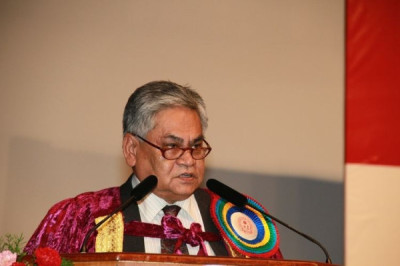Life & Legacy
Academic Career & Leadership
He began his academic journey as a lecturer in Philosophy at St. Stephen’s College, University of Delhi (1970–74), before joining North-Eastern Hill University (NEHU) as a reader in philosophy. He also served as the Director of the Indian Institute of Advanced Study, Shimla (1993–1999)
Vice-Chancellorship at NEHU
Prof. Miri’s tenure as Vice-Chancellor of NEHU was marked by innovative curricular reforms, interdisciplinary collaboration, and cultural inclusivity. He envisioned campuses that blended academic energy with cultural vibrancy, launching initiatives like creative-cultural centers and environmental heritage projects.
National Influence & Governance Roles
Following his academic leadership, he was nominated to the Rajya Sabha (2012–2016), where he advocated for educational equity and regional development in Northeast India. He also contributed to policy-making as a member of the National Advisory Council and the panel for implementing the Right to Education Act (RTE) .
Awards & Recognitions
In recognition of his outstanding contributions to education and literature, Prof. Miri was honored with the Padma Bhushan (2005). He also received the Pandit Iswar Chandra Vidyasagar Gold Plaque for his role in advancing social understanding and the Madhabdev Award for his scholarly excellence .
Scholarly Contributions
Prof. Miri’s publications span philosophy, education, and culture. Key works include:
-
Philosophy and Education (OUP, 2014)
-
Identity and the Moral Life (OUP, 2002)
-
Edited volumes: The Place of Humanities in Our Universities (2018), The Idea of Surplus, Tribal India: Continuity and Change, and essays on Kant and psychoanalysis.
